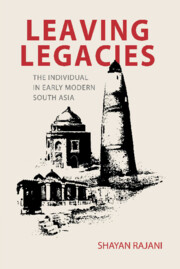6 - Regional Man
Published online by Cambridge University Press: 28 November 2024
Summary
The eighteenth century was a time of change. Some elites responded by forging new relations with layfolk mediated by Sindhi poetry (Chapters 4 and 5). These communities were not regional, which is to say they were not Sindh-wide. Rather, they were local, rooted, in the case of Hashim, in Thatta, and, in the case of Latif, in Bhit. At the same time, they were networked more broadly. Hashim's descendants moved out to Oman and Gujarat. His contacts extended all the way to the Hijaz. Latif, in turn, enjoyed recognition in Kachch and Jaisalmer. Unlike Mir Masum and Yusuf Mirak, their networks did not follow the circuits of the Mughal state but rather moved along different infrastructures of communication.
Under Ghulam Shah Kalhoro, the state had intervened in favor of these new experiments. Ghulam Shah had passed Hashim's decree in 1759, enforcing a form of Sunni public order in Thatta while also patronizing Latif's tomb sometime after Latif's death in 1751. Historically based in upper Sindh and Balochistan, the Kalhora had not cultivated close ties with the elites or people of Thatta and lower Sindh. Between 1757 and 1761, Ghulam Shah was forced into lower Sindh as a result of a succession struggle with his brothers. His patronage was most likely meant to build ties here in the context of fraternal conflict. These overtures may not have been wholehearted. In 1759, Ghulam Shah ordered the construction of Hyderabad, a new Kalhora capital in lower Sindh, passing over Thatta as a base of power. Yet the literary innovations of lower Sindh left an impact. During the reign of Sarfaraz Shah (1772–75), Ghulam Shah's son and successor, Sindhi poetry was incorporated into courtly culture, marking a major milestone in Sindhi literature.
It was another eighteenth-century resident of Thatta, Mir Ali Shir Qani (d. 1788–89), who synthesized the diverse developments of the century into an overarching vision of regional social order, connecting individual with region and Thatta and Sindh with the rest of the world. Qani belonged to a landholding sayyid family from the city. His
Information
- Type
- Chapter
- Information
- Leaving LegaciesThe Individual in Early Modern South Asia, pp. 167 - 193Publisher: Cambridge University PressPrint publication year: 2025
